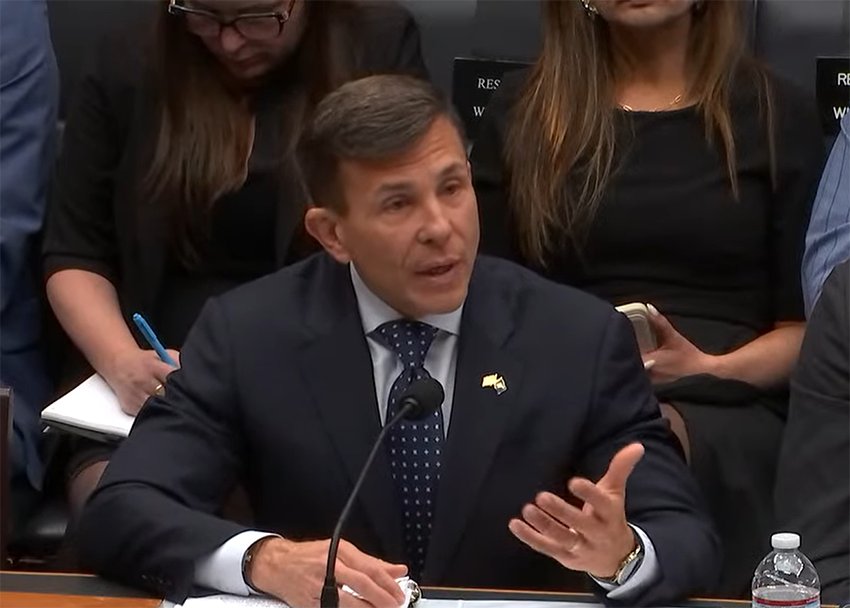As a new year begins in Congress, the Biotechnology Innovation Organization (BIO) is carrying over many of its legislative priorities from last year.
BIO’s interests include issues like regulation of pharmacy benefit managers (PBMs), R&D tax exemptions, “mitigating” IRA policies that disincentivize investment in rare diseases and small molecule therapies, support for new antimicrobials, reauthorizing the Farm Bill, and pandemic preparedness.
“For the second and final year of the 118th Congress, we will continue our advocacy as we started last year, working to advance legislative priorities that cross BIO’s diverse membership,” said Aiken Hackett, VP of Federal Government Relations for BIO.
As always, BIO is dealing with a broad range of legislative issues, but some of the key issues for 2024 are as follows.
What BIO’s watching
PBM legislation: Acting as middlemen between drug makers, pharmacies, and insurers, PBMs exploit their market power to profit by driving up drug prices. A host of proposals aiming to bring reforms and greater transparency to PBMs were advanced out of various Committees last year, with a bipartisan House vote passing the Lower Cost, More Transparency Act in December. Hackett said PBM reforms could be included in spending legislation. “The goal would be to get broad PBM reforms included with the government funding package in March,” she explained. BIO launched a BIOAction Campaign on the issue and will continue to keep up the momentum in the months ahead.
R&D amortization: Since 1954, companies have been able to deduct their R&D expenses, but under a provision in the 2017 Tax Cuts and Jobs Act, as of 2022 R&D expenses must be amortized over five years. Thus, the full deduction has been effectively reduced to 20% annually. Under the American Innovation and Jobs Act, bipartisan legislation awaiting passage in Congress, the full R&D deduction would be restored. Additionally, a new bipartisan legislative package to address this issue was recently announced by Senate Finance Committee Chairman Ron Wyden (D-OR) and House Ways & Means Committee Chairman Jason Smith (R-MO). It was passed by the House Ways & Means Committee (40-3) on Jan. 19. This legislation would fix the policy for past years and forward through 2025. BIO has made this issue a priority with its new BIOAction campaign, BIO is encouraging companies to contact their Members of Congress and urge them to pass a fix to R&D expensing.
Addressing IRA’s impact on developing orphan drugs and small molecule drugs: The IRA will impose price caps on 100 medicines in the Medicare program by 2031. These government price controls hurt innovators and the patients desperate for new treatments. The Inflation Reduction Act (IRA) did include a measure to address the challenges of developing orphan drugs by exempting these drugs for rare diseases from price controls. However, the IRA eliminates orphan drug exemptions if the drugs are approved for a second disease. Investigating secondary uses for orphan drugs has proven to be a fruitful approach to enabling potentially life-saving treatments. That’s why BIO supports the ORPHAN Cures Act, to extend drug pricing exemptions for orphan drugs, even if they treat multiple diseases. “If enacted, the ORPHAN Cures Act would support existing incentives and boost research into new treatments by incentivizing research in follow-on indications,” said a recent Council of State Bioscience Associations letter to congressional leaders.
The IRA also negatively impacts development of small molecule drugs, which are given only nine years of protection from price controls, as opposed to 13 years provided to biologics. Most pharmaceuticals on the market today, including at least 89 anti-tumor drugs for treating cancer, are small molecule drugs. But the IRA disincentivizes research into this critical area of medicine. BIO would like to fix this “pill penalty,” extending the negotiating date to 13 years, so that we ensure that science, and not arbitrary policies, determines what kinds of drugs are developed, according to Hackett.
The Pandemic All-Hazards Preparedness Act (PAHPA) Reauthorization: PAHPA, originally passed in 2006, establishes measures to prepare for the next pandemic and “allows us to be ready for other kinds of biothreats and public health emergencies,” according to Phyllis Arthur, BIO SVP of Infectious Diseases and Emerging Science. BIO has been pushing for a robust reauthorization and continued funding for these programs, and recently joined more than 130 organizations supporting the urgent passage of PAHPA. The legislation also includes a provision addressing the Vaccine Injury Compensation Program (VICP), according to Hackett, as BIO seeks to make important updates to the program.
A Farm Bill: The Farm Bill, which sets U.S. agriculture policy for five-year periods is essential to enabling biotechnology innovation that helps us feed and fuel our world while protecting the environment. BIO is interested in a range of Farm Bill measures, from supporting bio-based fuels, to ensuring federal procurement of biobased products, to enabling biostimulants that support crop health. The bill expired last year and was extended for a year without many changes. But BIO will continue to work toward passage of a bill that runs for five years and features policy improvement, including a remand of the Environmental Protection Agency’s plant-incorporated protectants rule.
Battling Antimicrobial Resistance (AMR): We need new antimicrobials to battle the increase in drug-resistant infections, also known as superbugs. Because these drugs must be used sparingly, it is hard to make antimicrobial drug development commercially viable, and many promising startups aren’t able to stay in business even after they bring novel antimicrobials to market. The PASTEUR Act currently under consideration in Congress would support development of new antimicrobials by providing a predictable return on investment for companies that develop antimicrobials to treat the most threatening infections. “Under this system, the government would enter into contracts with innovators to pay for consistent access to novel antimicrobials with payments that are decoupled from the volume of antimicrobials used,” explains Emily Wheeler, Director of Infectious Disease Policy at BIO. As the threat of AMR continues to grow, BIO had hoped to see the PASTEUR Act folded into the PAHPA policy discussions, but it was not included. With growing attention to the threat of AMR in the House and Senate, and among the public, BIO will use this momentum to urge passage of the PASTEUR Act this year, Hackett said.
Rare Pediatric Disease Priority Review Voucher Program: Another BIO priority, the Rare Pediatric Disease Priority Review Voucher Program, expires on Sept. 30. This voucher program was first created in 2012 to incentivize the development of novel therapies to treat pediatric diseases and has spurred greater investment to help the most vulnerable. “The BIO Federal Government Relations team is already on Capitol Hill educating Congress on the value of this program,” notes Hackett. “Passing the Creating Hope Reauthorization Act swiftly is as important as the bill name—Congress must continue to create hope for children with rare diseases.”




